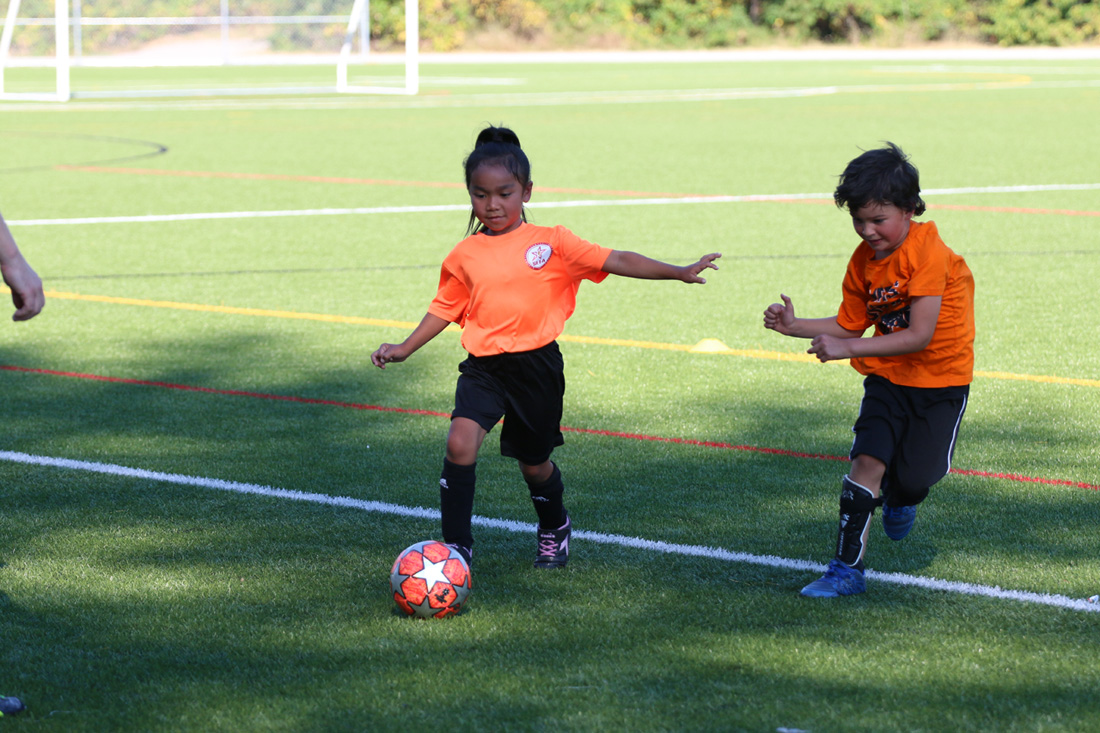What is the best age for soccer for children and what is the use?
Soccer is one of the most popular sports in the world. According to the latest data, over 500,000 people are employed in Canadian soccer clubs and programs, and this does not include soccer fans who are not registered with soccer clubs and academies.
Such popularity of this game explains the choice of many parents and children when determining the sport. Most often, boys at the age of 6 enroll into soccer, but there are also girls’ teams, where girls also show excellent results.
In this article, we will consider the impact of soccer on the development of a child, whether this game has contraindications.
Benefits of soccer for kids
Soccer, like any active sport, has huge health benefits for the child. First, daily outdoor exercise significantly strengthens the immune system. According to recent studies, children involved in sports, including soccer, are less susceptible to diseases such as acute respiratory infections, which indicates strong immunity.In addition, experts note the following positive aspects when playing soccer on the health of school children:
Physical development
Soccer helps to strengthen muscles, form the correct posture, strengthen endurance, and increase reaction speed. In addition, training will help prevent the appearance of excess weight, enrich the blood with oxygen and improve metabolism; mental development. Soccer lessons also have a positive effect on the mental development of children. They learn discipline, can increase their self-esteem, learn to adequately perceive criticism. According to the parents and teachers’ reviews, young soccer players are distinguished by purposefulness, poise and willpower. In general, doctors note that playing soccer really has a positive effect on the development of children. With a properly designed training schedule, children show excellent results in school, they are more adapted in society and do not experience difficulties in communicating with their peers. Moreover, young athletes are more physically resilient and even if 5-6 school lessons are difficult for some school children, they are still happy to attend training after school.
At what age should a child play soccer?
Children can start to play soccer once they learn to walk confidently. This is not training in the club, rather an introduction of sport activities through playing with family. Children can enroll into team sports no earlier than 5 years. It is simply difficult for a child to follow the rules and clearly understand the coach, until that age. School soccer programs begin from the first grade.
How to choose a soccer ball?
To motivate a child to play soccer, experts advise buying him his first soccer ball. Indeed, after such a gift, children can’t resist to play with friends.Choosing a soccer ball should be based on the age of the child. First of all, a children’s soccer ball must be of high quality, otherwise it can rip, which will spoil the impression of the gift.Soccer balls vary in size and weight. To find out how to choose the size of a soccer ball for a child, use these guidelines:
- #2 – up to 4 years. Ball circumference up to 56 cm, weight up to 280 gr
- #3 – up to 8 years. Ball circumference up to 63.5 cm weight up to 360 gr
- #4 – up to 12 years. Circumference up to 66 cm, weight up to 440 gr
- #5 – over 12 years old. Circumference up to 70 cm, weight up to 450 gr
Also, soccer balls are classified by purpose and type of surface. For younger children, it is better to choose universal training balls that are durable.
Soccer equipment for children
In addition to the ball, a young soccer player, will require a special uniform. Soccer kit for kids includes cleats, indoor shoes, and shin pads.When buying a uniform, please note that the goalkeeper’s equipment is significantly different from the uniforms of other players. The goalkeeper must be protected as much as possible, because they fall a lot and take all the shots.
- The young soccer goalkeeper will need:
- Goalkeeper jersey with elbow pads
- Pants or shorts• Goalkeeper `s gloves
All clothing should have pads that will protect them in the event of a fall.
Children’s soccer rules
The rules of children’s soccer are slightly different from the rules of the adult game. The only significant difference is that the young players are gradually prepared for the adult game and systematically, increasing the training load.Even though many consider soccer to be a traumatic sport, the rules of the game exclude serious injuries, because players are strictly prohibited from:
- Tripping
- Body checks
- Take the ball from the goalkeeper
- Intentionally hurting other players
Thanks to such rules, soccer can be attributed to safe sports for children, and has huge health benefits.
Children’s soccer contraindications
Like any sport, soccer has its contraindications. If you plan to enroll your child into a soccer program, be sure to undergo a medical examination, consult with your doctor. If the doctor gives permission, feel free to buy a uniform for your baby, choose a soccer club or academy and let your child enjoy the sport and a healthy lifestyle.


